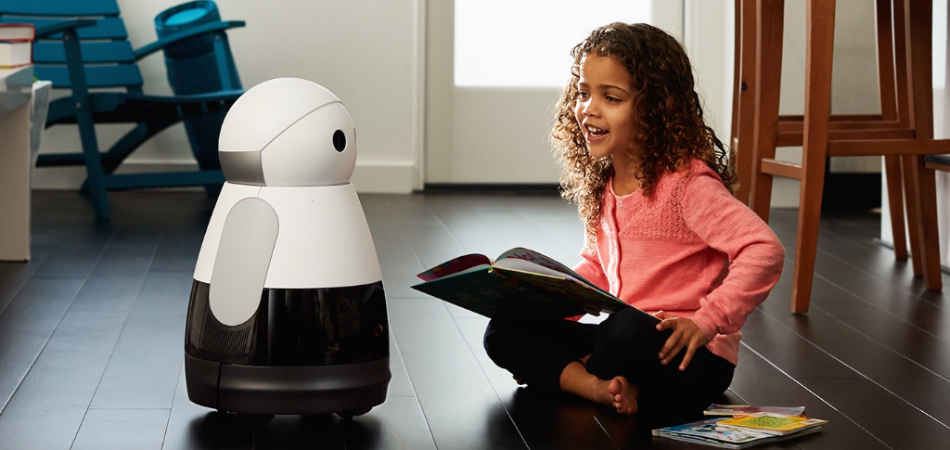
Channel 4’s fact checks the Zuck out of its news
The responsive campaign underlines the role of the news brand as a source of trusted news.
This year, Bruce Stirling focused on what was for me the stand out theme of this year’s SXSW: reconnecting technology with humanity and building an empathetic future.


Bruce Stirling, sci-fi writer, cyberpunk, futurist and general trouble maker has given the closing speech at SXSW Interactive almost since it began, long before it became a destination for those interested in the effect technology is having on brands, society and us as individuals.
He attempts to sum up a week of panels, talks, demos and debates in his address. This year he focused on what was for me the stand out theme of this year’s SXSW: reconnecting technology with humanity and building an empathetic future.
Bruce told the crowd that they and the technology giants that have dominated society for the last ten years, needed more art and less tech in their lives. He argued that by exploring technology through art, they would better understand the human condition, build better products and services and ultimately develop technology that was in the best interests of humanity.
That might sound a little heavy and esoteric, but the idea that we should build products and services capable of picking up our emotions via sensors, processing these inputs via artificial intelligence (AI) and then responding, was a constant theme at SXSW. This thinking extends to all types of environments, from the personal spaces of the home and car, to shared spaces like cities, and is something that marketers should be very interested in.
The current connected home conversations are dominated by smart assistants like Amazon Alexa and Google Home. There is no doubt that some of us are growing very comfortable with sharing our spaces with devices that listen and respond with what they think will be the most useful piece of content. Their usefulness will continue to grow according to Adam Cheyer, one of the co-founders of Apple’s Siri, who said, “in two to three years, assistants will be better than using the web, at answering complex issues". He made the further point that the more they are used, the more they will understand the human condition.
However, the next frontier for the connected home, and one where empathy is hugely important, is the home robot assistant. Kaijen Hsiao, founder and chief roboticist of Mayfield Robotics, and creator of Kuri, a ‘home robot’ companion, talked about the need to create home robots as anthropomorphised “critters” who are expressive and responsive. Or in other words, who have facial expressions that suggest they understand us as we interact with them and who can take an action based on all of those inputs that we find helpful.
Outside the home, the car is perhaps our most personal space and one that people designing experiences for need to think very carefully about.
John Krafcik from Waymo, the self-driving car manufacturer and sister company to Google, unsurprisingly saw the future of cars dominated by autonomy. However the need to make people feel a personal connection with self-driving cars was something he felt to be hugely important. From the non-threatening “bubble” design of the early autonomous vehicles or the way the newer models monitor passenger comfort and provide feedback on how the car is navigating the street, understanding the potential fear of the self-driving experience is key to their long term success.
In numerous other talks about the future of cars, speakers lined up to tell us that the built-in sensors would help understand the wants and needs of passengers. This data will allow automotive companies and their partners to think about experiences and services that could be created, while the car takes care of the driving.
Once you’ve built technology that can on some level understand us emotionally, it should in theory be more aligned to our goals and ethics and start to act in our best interests on a such wider scale.
While many believe we'll use robots, rather than be in their service, Nell Watson from the Singularity University claims that “in about five years, some people in this room will essentially be employed by machines, to do tasks the machines can’t do”. Nell went on to say that the profits of those businesses would be returned to human beings, almost like "machine social responsibility".
As futuristic as that may sound, it’s not a bad idea to start to think about the core purpose of your business and how AI could help expand and amplify that purpose for you.
While some of the technology that was highlighted at SXSW this year feels a long way away, the reality is that in the next five years more and more of us will invite technology into our lives that takes emotional data from us. Our job as marketing people is to make sure that the products and services we build in the future are enabled by tech but driven by empathy.
Lawrence Weber is managing partner at Karmarama, part of Accenture Interactive, and a director of Innovation Social.
Looks like you need to create a Creativebrief account to perform this action.
Create account Sign inLooks like you need to create a Creativebrief account to perform this action.
Create account Sign in